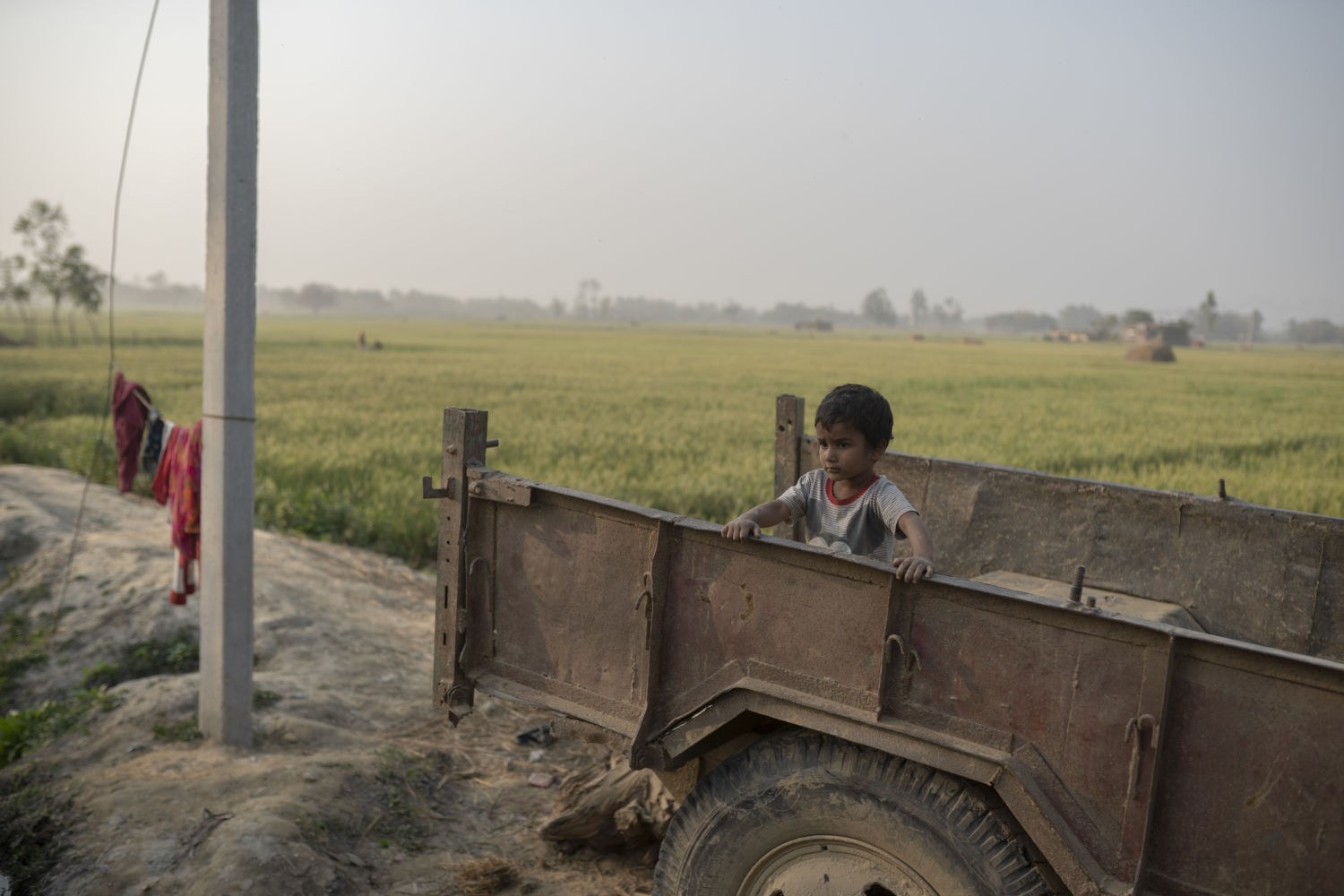Eradicating Poverty
Innovating against the grain
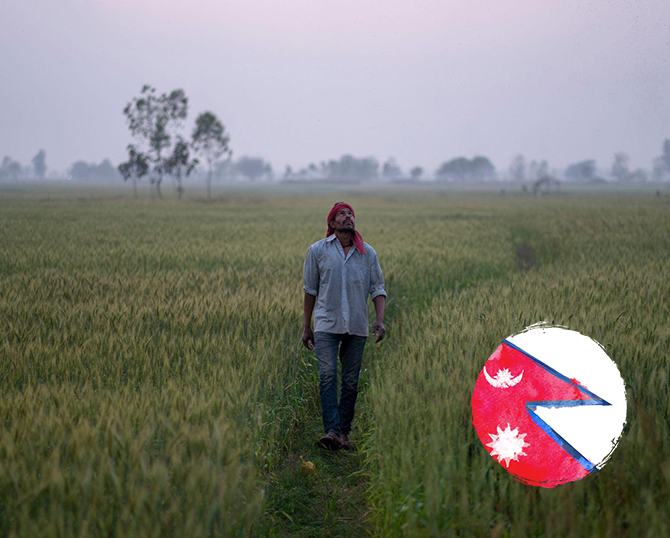

A thick fog blankets the wide expanse of farmland each morning in the small village of Sugauli Birta, an agrarian community near the Indian border of Nepal. There is an accompanying silence as women and men rise with the sun to work. Sugauli Birta is a nine-hour drive—or an 11-minute flight—from the Nepali capital of Kathmandu, and the region’s biodiversity is as robust as the work ethic of its people. Driving along winding roads through the Chure Hill range to the Terai plains, the hard work of the people living there is evident. Rice, wheat, sugarcane, and other crops form the foundation of the local economy.
The locals rely on agriculture not only for their livelihood but also their own subsistence. It is the norm for many to travel several hours, lugging heavy sacks of grain, to mills that grind wheat and rice. This consumes many hours that might otherwise be put toward more life-enriching activity, but families need food, so mothers and fathers have no choice but to spend time and money—25 Nepalese Rupees (NPR, about $.20 USD) per 10 kilograms to grind their grain.
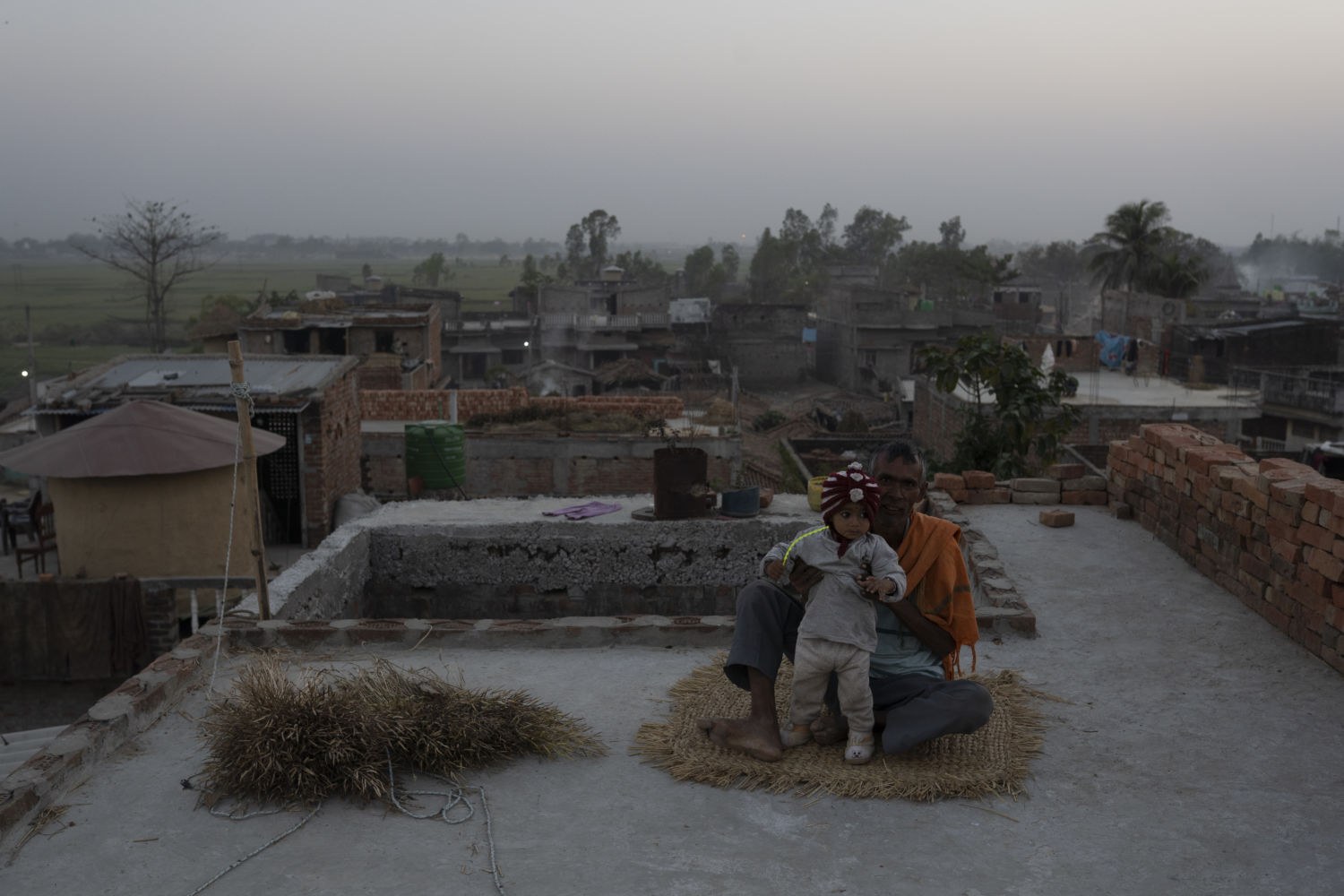
Recognizing an opportunity
Until recently, that was life in Sugauli Birta. Then Lorik Prasad Yadav had an idea. Why should people spend their valuable time traveling to a mill when a mill could just as easily travel to them? Lorik took out a loan, bought a tractor, and mounted three threshers on it, creating a mobile mill. He drives from house to house, customer to customer, changing lives as he goes.
Food is a necessity, and Lorik has made it easier, cheaper, and quicker for thousands of people in and around Sugauli Birta to process their crops. He keeps his prices low, charging only 15 NPR per 10 kilograms of grain—and he even leaves the chaff behind so that local farmers can recycle it as organic fertilizer or feed for their livestock. His customers save their chaff, save money, and save themselves the exhausting, multi-hour trip to town.
But not everyone was pleased with Lorik’s innovation.
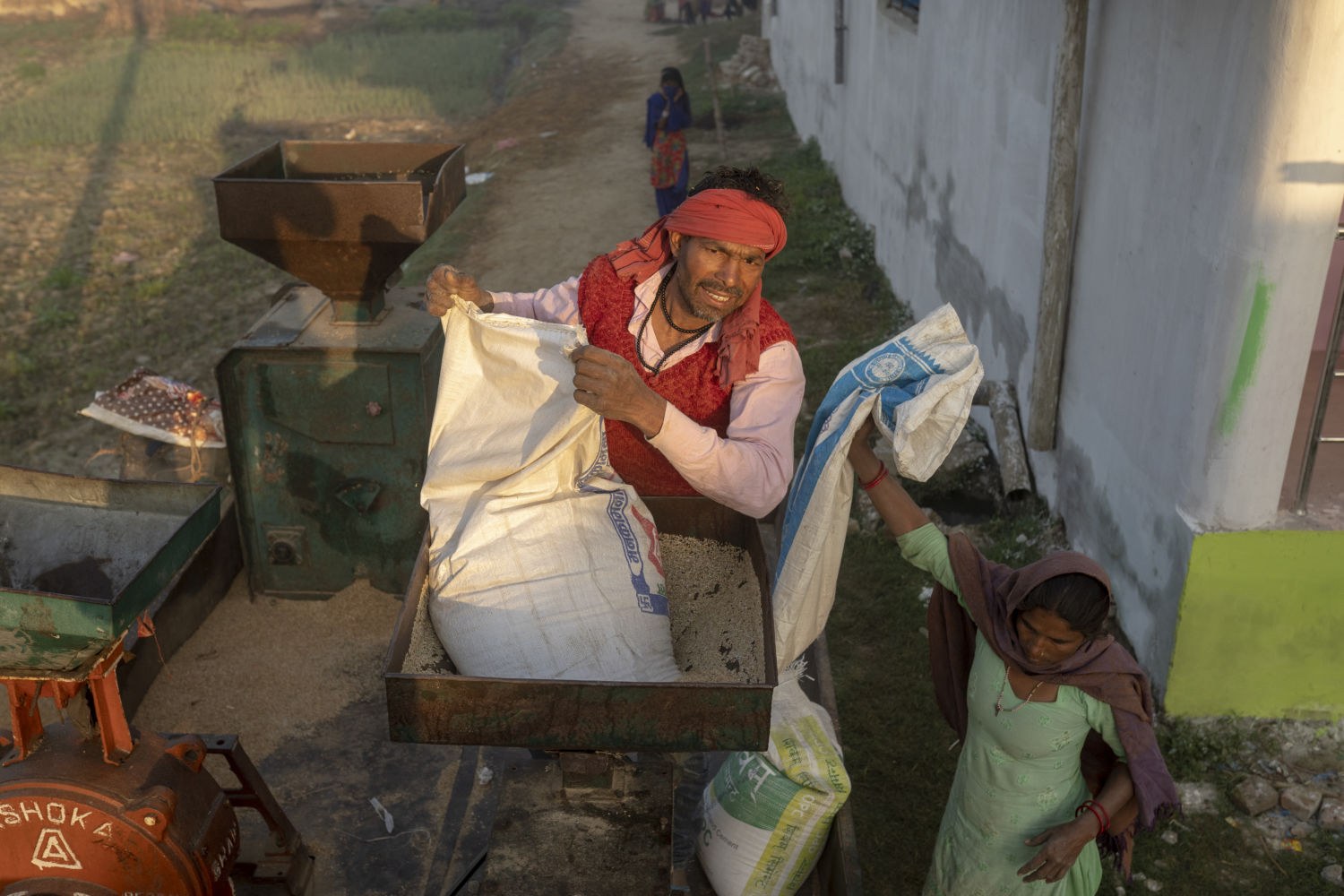
The threat of competition
Established brick-and-mortar mills saw Lorik’s entrepreneurship as a threat and lodged a complaint with the Nepali Office of Cottage and Small Industries (OSCI). They argued that the law did not specifically allow mobile mills, and that mills require a permanent location. The OSCI chief didn’t want to shut down Lorik’s business, but he didn’t have the legal means to register it. Lorik’s innovation had to be shut down.
But this entrepreneur was not willing to give up so easily.
“Real solutions will come from communities like Sugauli Birta, where people themselves know best what difficulties they face in their communities and what is needed to overcome those challenges.”
Reforming barriers to prosperity
With the support of his fellow villagers, Lorik reached an agreement with the stationary mills. He offered to continue service for those farmers who were too far away to reach the mills easily, but he would not do business with those who were close. Despite this agreement, Lorik is still unable to register as a formal business due to Nepal’s antiquated laws—laws which the Samriddhi Foundation, an Atlas Network partner based in Kathmandu, is seeking to reform.
The team at Samriddhi has worked for years to facilitate easier business registration in Nepal, but change is complicated. Nepal has had 27 governments in the last 28 years, and the tentative reforms of one administration are often rolled back by the next. That lack of political stability prevents the modernization of laws that might otherwise encourage more people such as Lorik to create new ways to add value to their communities.
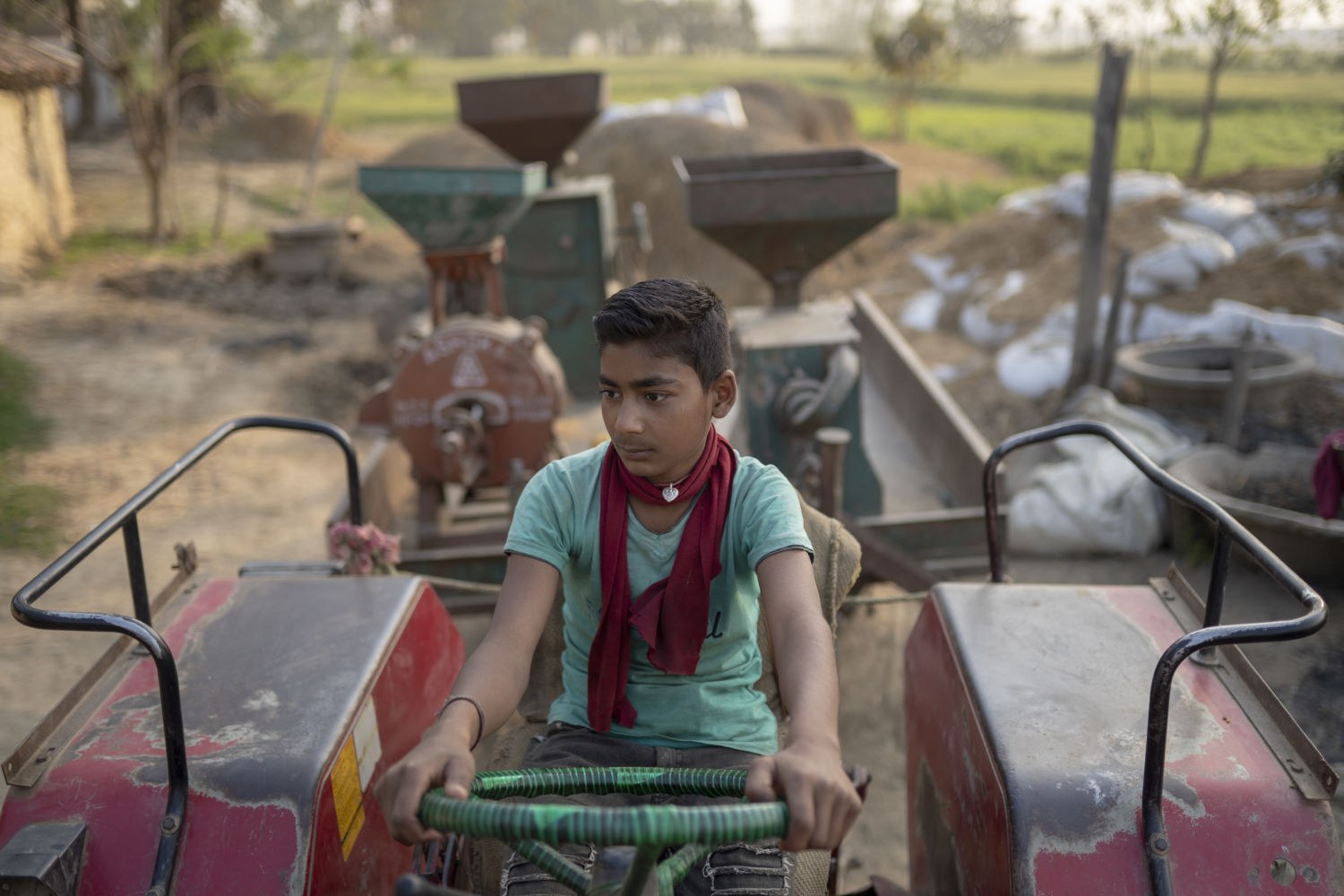
A bottom-up approach to alleviating poverty
The effort to change the laws to allow Lorik’s small businesses to register and gain access to credit and other services is ongoing, but it’s part and parcel of what Samriddhi does. Empowered by US$100,000 from Atlas Network, Samriddhi is able to take a holistic approach to making Nepal a more welcoming environment for innovators such as Lorik. By recognizing a problem that no one else realized existed, Lorik created value for his community, exemplifying the bottom-up approach to poverty alleviation that Atlas Network partners—with the support of Atlas Network—seek to encourage and enable. Such creative people, given opportunity, lift up their communities and countries. Lorik’s permissionless innovation, despite being limited by bad policy, has even inspired others to follow his model in other villages.
Lorik’s cause symbolizes Samriddhi’s countrywide fight for opportunity—but the team knows that the real solutions will come from communities like Sugauli Birta, where people themselves know best what difficulties they face in their communities and what is needed to overcome those challenges.
Solving poverty—one culture at a time
Atlas Network supports civil society organizations like Samriddhi—where local experts work together to remove barriers to human flourishing—all over the world. Our partners provide local leadership and expertise, seeking targeted solutions to poverty that take into account local culture and the unique policy environment of each community. Our Doing Development Differently initiative, which was launched in 2017, seeks to empower those organizations in their pursuit of increasing opportunity, prosperity, and individual freedom in their local communities.
